Esperpento. Popular Art and Aesthetic Revolution
Encounters Around the Exhibition
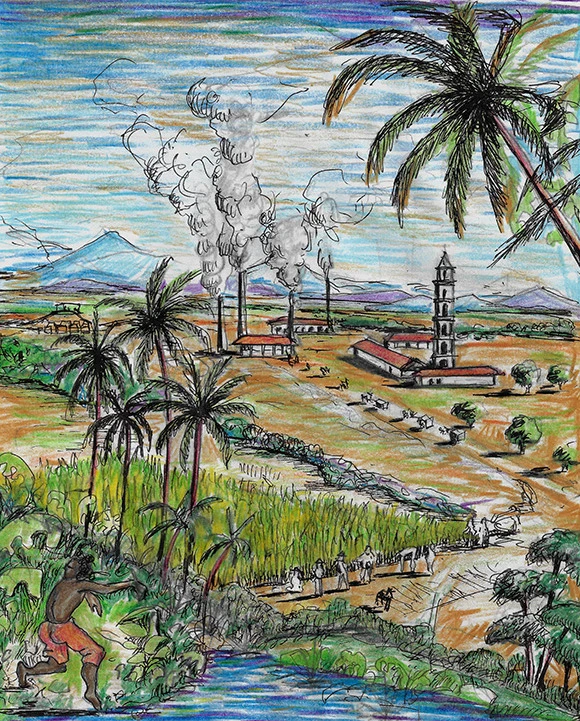
Lagartijas tiradas al sol, No tengo por qué seguir soñando con los cadáveres que he visto, 2024
Held on 09, 16, 17 oct 2024
This encounter series, which revolves around the exhibition Esperpento. Popular Art and Aesthetic Revolution, comprises presentations of the show by its curatorial team and two theatre pieces which reflect on the notion of “esperpento” and are performed by the companies Lagartijas tiradas al sol and ButacaZero.
The exhibition is devoted to the artistic fortune of this variety of social critique, which is founded in the grotesque, parody and deformation, approaching the concept of esperpento as a fulcrum of aesthetic thought that puts forward a new way of looking at reality. Formulated by writer Ramón María del Valle-Inclán (1866–1936) in reaction to the backwardness and moral despair that blighted Spain in the first third of the twentieth century, esperpento confronted the country’s social, political and cultural constraints, focusing attention on a distancing of the gaze and a set of aesthetic strategies whose prime effectiveness lay in deformation. Eight broad sections build the framework of the exhibition — the theatre companies’ interventions here focus on the rooms of the third section (Marionette Stage), in which esperpento is explored in relation to popular theatre, encompassing elements such as puppets and marionettes, carnival and romances de ciego (blind-man ballads).
The Lagartijas tiradas al sol theatre company will present a contemporary revision of the novel Tirano Banderas (Tyrant Banderas, Valle-Inclán, 1926), setting out from the version in bululú — a genre of theatre whereby a lone comedic actor portrays the entire work — devised by stage director Cipriano Rivas Cherif. ButacaZero, for its part, will premiere Melón pelado (Peeled Melon), a non-infantile farce for a box of dolls based on the “shaved heads of Francoism”, in reference to the women who were harassed at the end of the Civil War and paraded in public processions with their heads shaved after being forced to ingest castor oil, a powerful laxative.
Programme
Encounters
Organised by
Museo Reina Sofía
Agenda
miércoles 09 oct 2024 a las 18:00
Session 1. No tengo por qué seguir soñando con los cadáveres que he visto
6pm Presentation of the exhibition Esperpento. Popular Art and Aesthetic Revolution by its curatorial team
6:30pm Stage performance of No tengo por qué seguir soñando con los cadáveres que he visto (I Don’t Have to Keep On Dreaming about the Corpses I’ve Seen) by Lagartijas tiradas al sol. Produced by the Museo Reina Sofía, 2024.
Lagartijas tiradas al sol brings back to Spain the bululú that stage director and stage designer Cipriano Rivas Cherif took to Mexico in exile, setting out from a revision of Valle-Inclán’s Tirano Banderas (Tyrant Banderas). With No tengo por qué seguir soñando con los cadáveres que he visto, the collective leaves the space of representation to rebel and fighting women who are absent from the writer’s narrative but are victims all the same of the tyranny and violence the novel describes. Therefore, women weavers, poets, painters, peasants, community leaders, sociologists, anthropologists, teachers, doctors and seed guardians are invited to write a letter to the tyrant.
During the exhibition period, this stage installation is activated on the following days:
Thursday, 10, Friday, 11, and Saturday, 12 October - 6:45pm and 7:45pm
Sunday, 13 October – 12pm and 1pm
Performed by Luisa Pardo
Monday, Wednesday and Friday, from 14 October 2024 to 10 March 2025 - 6:45pm and 7:45pm (except on Wednesday 16)
Performed by Delia Pacas and Laura Pacas
miércoles 16 oct 2024 a las 18:00
Session 2. Melón pelado
6pm Presentation of the exhibition Esperpento. Popular Art and Aesthetic Revolution by its curatorial team
6:45pm Stage performance of Melón pelado by ButacaZero. Produced by the Museo Reina Sofía, 2024.
Two puppeteers open a box of dolls which, in reality, is a chest of memories. Here the story begins. Spain, in the nineteen thirties. The Village Music Band (from any village) gets people going. Between the churros stand and anis booth, the procession, the parade, the troupe appears. Yet this is a Dantesque parade of shaven-headed dolls — without doubt, the work resembles an esperpento, but Valle-Inclán’s it is not. Melón pelado sets forth a journey of initiation towards places in a history that is not written or told, and much less photographed, to reflect on the very fact of the memory of the found.
Credits
Cast: Nuria Gullón and Cris Collazo
Text: Esther F. Carrodeguas
Director: Xavier Castiñeira
Design and stage construction: Luchi Iglesias
Sonoplastia consultancy: Juanma LoDo
Production: ButacaZero
jueves 17 oct 2024 a las 18:00
Session 3. Melón pelado
6pm Presentation of the exhibition Esperpento. Popular Art and Aesthetic Revolution by its curatorial team
6:45pm Stage performance of Melón pelado by ButacaZero. Produced by the Museo Reina Sofía, 2024.
Two puppeteers open a box of dolls which, in reality, is a chest of memories. Here the story begins. Spain, in the nineteen thirties. The Village Music Band (from any village) gets people going. Between the churros stand and anis booth, the procession, the parade, the troupe appears. Yet this is a Dantesque parade of shaven-headed dolls — without doubt, the work resembles an esperpento, but Valle-Inclán’s it is not. Melón pelado sets forth a journey of initiation towards places in a history that is not written or told, and much less photographed, to reflect on the very fact of the memory of the found.
Credits
Cast: Nuria Gullón and Cris Collazo
Text: Esther F. Carrodeguas
Director: Xavier Castiñeira
Design and stage construction: Luchi Iglesias
Sonoplastia consultancy: Juanma LoDo
Production: ButacaZero
Participants
Lagartijas tiradas al sol is an artists’ community from Mexico City, founded by Luisa Pardo and Lázaro Gabino Rodríguez, who describe their stage projects as seeking to create narratives on events from reality. They have participated at Spanish and international theatre festivals and encounters, such as the Festival d’automne and Festival Impatience in Paris, Kunstenfestivaldesarts in Brussels, Theater Spektakel in Zurich, Festival TransAmériques in Montreal, the Foro de escena contemporánea Re/posiciones in Mexico City, the XII Festival Internacional de Teatro de Grupo in Lima and the Festival Internacional de Teatro de Manizales.
ButacaZero is the theatre company of writer, actress and director Esther F. Carrodeguas and stage director Xavier Castiñeira, who put forward theatre which engages in dialogue with the present day from a critical and ironic gaze. They have participated at festivals and in theatres in Galicia, for instance the Mostra Internacional de Teatro de Ribadavia and Mostra Internacional de Teatro cómico e festivo de Cangas, as well as the Teatro del Barrio in Madrid. Moreover, they have been nominated for the Teatro María Casares Awards and the Max Awards for Performing Arts and have co-produced Iribarne (2023), with the Centro Dramático Nacional de España.
The curatorial team of Esperpento. Popular Art and Aesthetic Revolution, made up of Pablo Allepuz, Rafael García, Germán Labrador, Beatriz Martínez, José A. Sánchez and Teresa Velázquez.
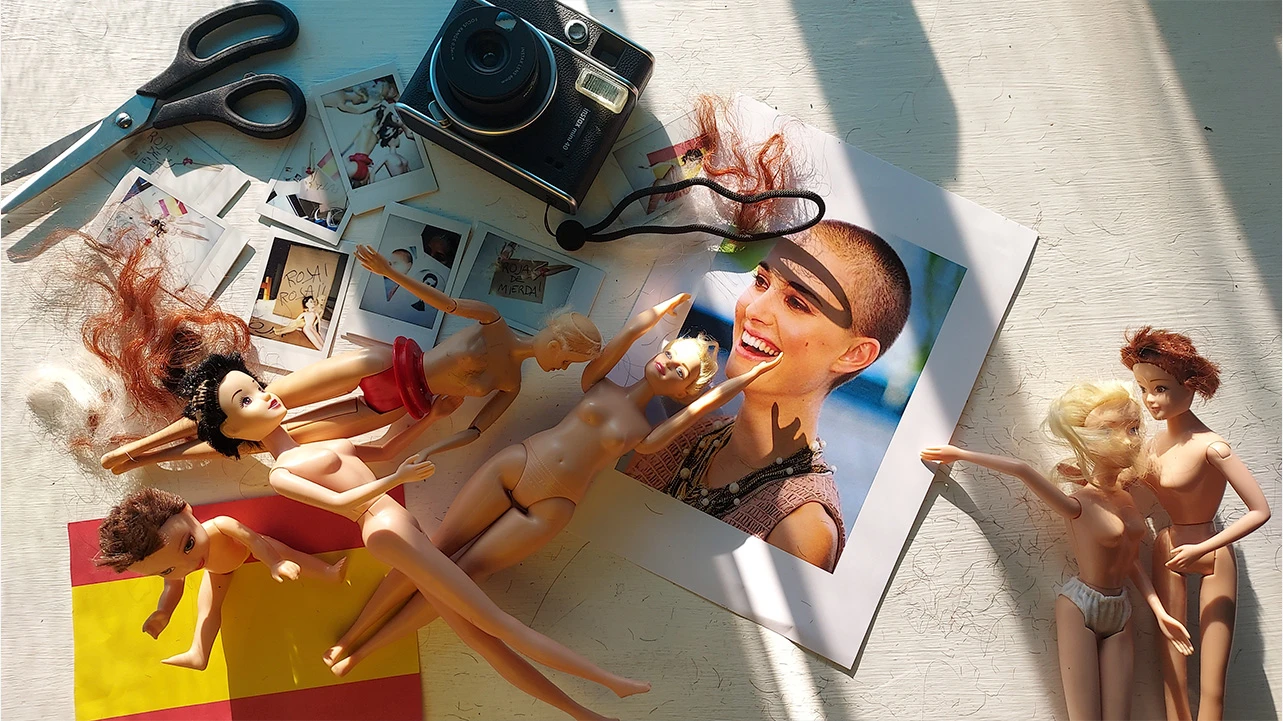
Más actividades

CLINIC 2628. A Community of Writing and Research in the Arts
February – October 2026
Clinic 2628 is a project which supports and brings together writings which stem from the intention to offer a space and sustainable time for research work in art and culture. Framed within an academic context which is increasingly less receptive to the forms in which thinking happens and is expressed, the aim is to rescue the academic from its neoliberal trappings and thus recover the alliance between precision and intuition, work and desire. A further goal is to return writing to a commons which makes this possible through the monitoring of processes and the collectivisation of ideas, stances, references and strategies.
The endeavour, rooted in a collaboration between the Museo Reina Sofía’s Studies Directorship and the Artea research group, via the i+D Experimenta project, is shaped by three annual editions conceived as spaces of experimentation, discussion and a demonstration of writings critical of what is put forward by today’s academia.
What forces, forms and processes are at play when writing about art and aesthetics? In academia, in museums and in other cultural institutions, the practice of writing is traversed by productivist logics which jeopardise rhythms of research and experimentation. The imposition of both scientism inherent in the structure of “the paper” and the quantifying of results which demand a criterion of quality and visibility sterilise and smoothen, from the outset, the coarseness that is particular to writing understood from the concrete part of language: phonic, graphic, syntactic and grammatical resistance connecting the language user to the community the language unites and activates. They also sterilise the roughness enmeshed in the same desire to write, the intuitive, clear and confusing pathways that once again connect the writer to those reading and writing, participating in a common good that is at once discovered and produced.
The progressive commercialisation of knowledge propelled by cognitive capitalism moves further away from the research and production of knowledge in artworks and artistic languages and practices. The work of curators and archive, criticism, performances and essays formerly saw a horizon of formal and emotional possibilities, of imagination that was much broader when not developed in circumstances of competition, indexing and impact. Today, would it be possible to regain, critically not nostalgically, these ways; namely, recovering by forms, and by written forms, the proximity between art thinking and its objects? How to write in another way, to another rhythm, with no more demands than those with which an artwork moves towards different ways of seeing, reading and being in the world?
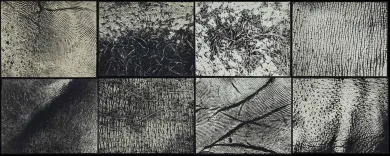
The (legal) person and the legal form. Chapter II
8, 12, 15 January, 2026 – 16:00 to 19:00
As part of the Studies Constellation, the Study Directoship’s annual fellowship, art historian and theorist Sven Lütticken leads the seminar The (Legal) Person and the Legal Form: Theoretical, Artistic, and Activist Commitments to foster dialogue and deepen the hypotheses and questions driving his research project.
This project, titled Unacting Personhood, Deforming Legal Abstraction, explores the dominance of real abstractions—such as exchange value and legal form—over our processes of subjectivation, and asks how artistic practices can open up alternative ways of representing or performing the subject and their legal condition in the contemporary world.
The seminar consists of eight sessions, divided into three chapters throughout the academic year. While conceived as non-public spaces for discussion and collective work, these sessions complement, nourish, and amplify the public program of the Studies Constellation.
In this second chapter of the seminar, the inquiry into the aesthetics and politics of legal form continues with three sessions that pick up the discussions held in Chapter I but propose new lines of flight. The first session focuses on international law via the writings of the British author China Miéville, which allows us to reconsider the notion of the legal form –following Evgeny Pashukanis— and, through it, a variety of (people’s) tribunals. While the crucial concept of the legal person –as the right-holder central to the form of law— was debated in Chapter I, the second session focuses on attempts to extend personhood not (just) to corporations, but rather to nonhuman animals or ecosystems. Finally, the third session poses the question: how can groups and networks use officially recognized organizational forms (such as the foundation or the cooperative) and/or use a collective persona (without necessarily a legal “infrastructure” to match) to act and represent themselves?

Oliver Laxe. HU/هُوَ. Dance as if no one were watching you
Tuesday, 16 December 2025 – 7pm
As a preamble to the opening of the exhibition HU/هُوَ. Dance as if no one were watching you, film-maker Oliver Laxe (Paris, 1982) engages in conversation with the show’s curators, Julia Morandeira and Chema González, touching on the working processes and visual references that articulate this site-specific project for the Museo Reina Sofía. The installation unveils a new programme in Space 1, devoted from this point on to projects by artists and film-makers who conduct investigations into the moving image, sound and other mediums in their exhibition forms.
Oliver Laxe’s film-making is situated in a resilient, cross-border territory, where the material and the political live side by side. In HU/هُوَ. Dance as if no one were watching you, this drift is sculpted into a search for the transcendency that arises between dancing bodies, sacred architectures and landscapes subjected to elemental and cosmological forces. As a result, this conversation seeks to explore the relationship the piece bears to the imagery of ancient monotheisms, the resonance of Persian Sufi literature and the role of abstraction as a resistance to literal meaning, as well as looking to analyse the possibilities of the image and the role of music — made here in collaboration with musician David Letellier, who also works under the pseudonym Kangding Ray — in this project.
These inaugural conversations, part of the main working strands of the Museo’s Public Programmes Area, aim to explore in greater depth the exhibition narratives of the shows organised by the Museo from the perspective of artists, curators and specialists.
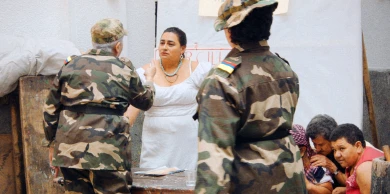
Manuel Correa. The Shape of Now
13 DIC 2025
The Shape of Now is a documentary that explores the challenges and paradoxes of memory, reparation and post-conflict justice, extending a defiant and questioning gaze towards the six-decade armed conflict in which the Colombian State, guerrillas and paramilitary groups clashed to leave millions of victims in the country. The screening is conducted by the Aesthetics of Peace and Desertion Tactics study group and includes a presentation by and discussion with the film’s director, Manuel Correa.
The film surveys the consequences of the peace agreements signed in 2016 between the Colombian State and the FARC guerrilla organisation through the optics of different victims. It was recorded shortly after this signing, a time in which doubts lingered over the country’s future, with many groups speculating in the narration. Correa harnesses the power of images, visual and bodily memory, fiction and re-staging as tools for understanding the conflict, memory and healing, as well as for the achievement of a just peace that acknowledges and remembers all victims.
The activity is framed inside the research propelled by Aesthetics of Peace and Desertion Tactics, a study group developed by the Museo’s Study Directorship and Study Centre. This annual group seeks to rethink, from a theoretical-critical and historical-artistic perspective, the complex framework of concepts and exercises which operate under the notion of pacifism. A term that calls on not only myriad practices ranging from anti-militarism and anti-war movements to activism for non-violence, but also opens topical debates around violence, justice, reparation and desertion.
Framed in this context, the screening seeks to reflect on propositions of transitional and anti-punitive justice, and on an overlapping with artistic and audiovisual practices, particularly in conflicts that have engendered serious human rights violations. In such conflicts, the role played by audiovisual productions encompasses numerous challenges and ethical, aesthetic and political debates, among them those related to the limits of representation, the issue of revictimisation and the risks involved in the artistic commitment to justice. These themes will be addressed in a discussion held after the session.
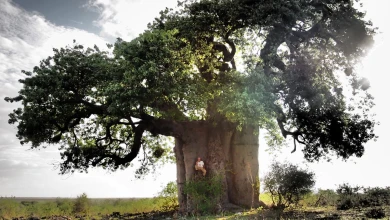
Francisco López and Barbara Ellison
Thursday, 11 December - 8pm
The third session in the series brings together two international reference points in sound art in one evening — two independent performances which converse through their proximity here. Barbara Ellison opens proceedings with a piece centred on the perceptively ambiguous and the ghostly, where voices, sounds and materials become spectral manifestations.
This is followed by Francisco López, an internationally renowned Spanish sound artist, who presents one of his radical immersions in deep listening, with his work an invitation to submerge oneself in sound matter as a transformative experience.
This double session sets forth an encounter between two artists who, from different perspectives, share the same search: to open ears to territories where sound becomes a poetic force and space of resistance.
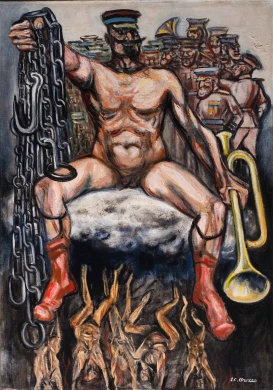
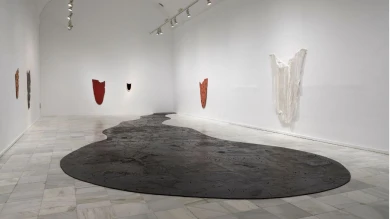
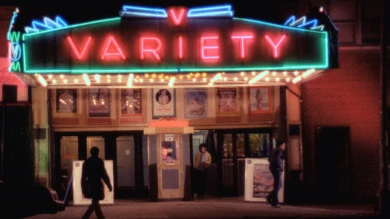
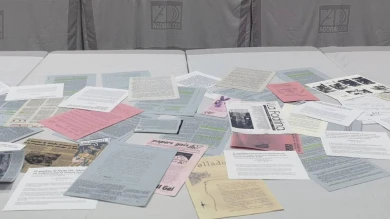
![Miguel Brieva, ilustración de la novela infantil Manuela y los Cakirukos (Reservoir Books, 2022) [izquierda] y Cibeles no conduzcas, 2023 [derecha]. Cortesía del artista](https://recursos.museoreinasofia.es/styles/small_landscape/public/Actividades/ecologias_del_deseo_utopico.jpg.webp)
![Ángel Alonso, Charbon [Carbón], 1964. Museo Reina Sofía](https://recursos.museoreinasofia.es/styles/small_landscape/public/Actividades/perspectivas_ecoambientales.jpg.webp)